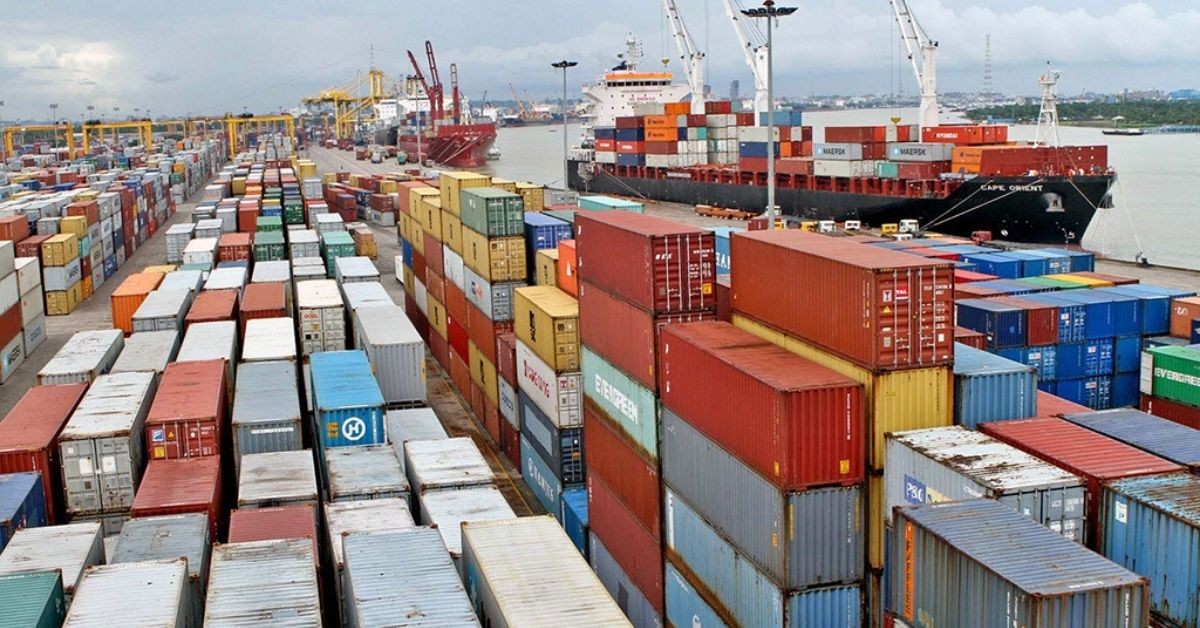Apparel exporters’ allegation of time and cost overruns in cargo release at off-docks around Chattogram seaport comes under probe by government’s revenue authority.
Officials say the National Board of Revenue (NBR) has launched investigation into the allegations of the apparel exporters over delays and higher costs in private off-docks.
According to the exporters, release of imported raw materials from private off-docks at Chattogram seaport is costly and time-consuming compared to that under the purview of Chattogram Port Authority (CPA).
As per instructions from customs wing of the NBR, issued on Monday, the Chattogram Customs House (CCH) will conduct the scrutiny to find out reasons behind the cost and time overruns.
The probe report has to be submitted within next fifteen days to the NBR high-ups.
The issue came into focus following a letter of Bangladesh Garment Manufacturers and Exporters Association (BGMEA) on April 26, 2021.
Recently, the NBR allowed the private inland container depots (ICDs), better known as off-docks, to handle all of the import products until August 31, 2021 to ease port congestion.
Usually, 17 private ICDs are in the business of handling 37 types of non-RMG imports and all of export products.
Nurul Qayyum Khan, president of the Bangladesh Inland Container Depots Association (BICDA) and also chairman of QNS Container Service Limited, says they are providing crisis support for smooth flow of apparel exports in this pandemic, which has upended normal order of life all across the planet.
He, however, terms the allegation on delay in releasing products untrue, but admits the cost of ICD handling is a bit higher compared to that of the port.
“Establishment of a private ICD needs huge investment. Investors would naturally expect returns on their investment,” says the leading operator in the newfound business.
He pointed out that charges of private ICDs remained unchanged during the last 12 years while all of the expenditures had increased.
Usually, he added, off-docks are not allowed in handling RMG products, but at crisis moment they play a major role in easing port congestion.
He made a point that freight cost for exporters went up to US$15,000 from $2,000 alongside significant rise in truck rents and labour cost but apparel exporters were alleging higher cost only for ICDs.
Mohammed Abdus Salam, former BGMEA leader and Managing Director of ATS Apparel Ltd, appreciated ICDs’ role as a support at this crisis hour but preferred port instead of ICD for releasing their products.
“Cost for releasing import goods from private off-docks is 20 to 25 percent higher compared to that of port charges,” he said.
He mentions that imported RMG goods account for 30 to 35 per cent of the import containers at Chattogram port which should be allowed to get released from the port docks.
“Apparel exporters need to get their products released within three to five days of import as priority products,” he says.
The leading apparel businessman observes that delay in releasing products from ICDs is natural as goods have to be shifted from port to off- docks in a detour of seven to ten miles.
The private ICDs, he said, are maintaining international standards and exporters take services from them following buyers’ recommendations.
Md Fakhrul Alam, commissioner of the CCH, says he has yet to receive the NBR instructions but knows about the allegation of apparel exporters.
It is natural that private ICDs cannot afford to offer the lower charges that ports can, he added.
“Off-docks have to come with long-term investment and have to make profit gradually offering business-friendly reasonable charges,” he said.
Earlier in December last, the Chattogram Port Authority proposed increasing the number of items to be released from the off-docks and gradually bringing all imported items under the scheme to reduce the container congestion at the premier seaport.
ICD operators say as per international best practices, all of the imported goods are allowed to release from ports. After the NBR allowed the ICDs to handle all import goods, port congestion eased.
According to the BCIDA president, goods-laden containers came down to 8000 TEUs Tuesday from 19,000 TEUs earlier, as the global epidemic greatly disrupted business and supply lines worldwide.
Source : The Financial Express






